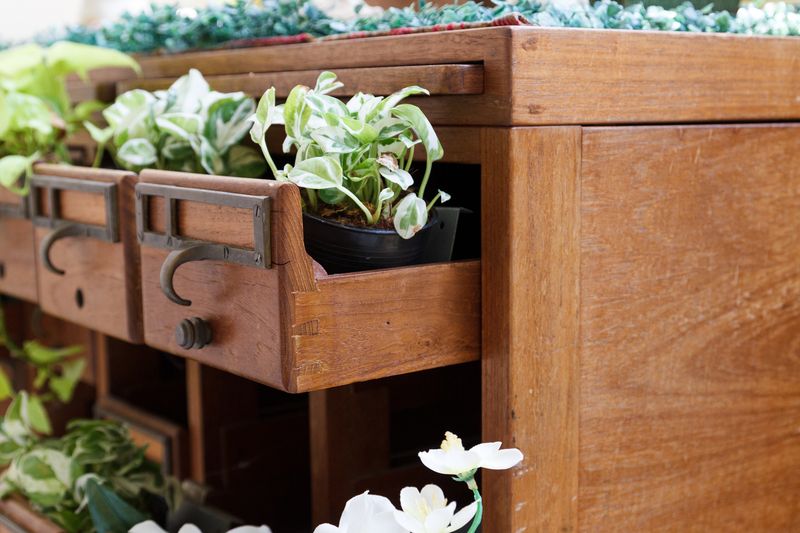Sustainable Practices for Less Household Waste: A Comprehensive Guide
In our increasingly eco-conscious society, minimizing household waste is more important than ever. Adopting sustainable practices for less household waste not only helps protect the environment but also saves money and fosters a healthier lifestyle. This detailed guide explores practical, effective, and innovative methods to reduce your home's environmental impact while promoting a greener world.

Why Reducing Household Waste Matters
The average household generates a significant amount of waste yearly, contributing to overflowing landfills, air and water pollution, and resource depletion. By embracing sustainable living practices, families can drastically decrease the amount of waste ending up in landfills, conserving resources and promoting a circular economy.
The Environmental Impacts of Excess Waste
- Landfill Overflow: Increased waste demands more landfill space, contaminating soil and groundwater.
- Greenhouse Gas Emissions: Decomposing waste emits methane, a potent greenhouse gas contributing to climate change.
- Biodiversity Loss: Improperly managed waste damages natural habitats, threatening wildlife and ecosystems.
Implementing sustainable household waste reduction strategies is critical for environmental preservation and a healthier planet.
Simple Steps to Reduce Household Waste
1. Adopt a Zero Waste Mindset
A zero waste lifestyle revolves around the principle that all products should be reused or recycled, drastically minimizing what is sent to the landfill. Here's how to start:
- Analyze Your Waste: Audit your household's trash to identify the most common disposable items.
- Set Achievable Goals: Start with realistic objectives - perhaps reducing kitchen waste or switching to reusable grocery bags.
- Educate and Involve Everyone: Involve family members in your waste-reduction journey for collective accountability.
2. Rethink Consumption Habits
One of the most effective eco-friendly household waste reduction practices is mindful consumption:
- Buy Only What You Need: Overbuying leads to unnecessary waste, especially with perishables. Make detailed shopping lists and stick to them.
- Choose Products with Minimal Packaging: Opt for packaging-free or bulk products instead of individually wrapped goods.
- Support Local & Sustainable Brands: Local products often have a smaller footprint as they require less transportation and often feature less packaging.
3. Swap Single-Use Items for Reusable Alternatives
Disposable products are among the top contributors to household waste. Transitioning to reusable items is essential:
- Use Cloth Shopping Bags: Replace plastic bags with sturdy, reusable totes.
- Choose Glass or Metal Containers: Store food in reusable glass jars and stainless steel containers instead of flimsy plastic wrap or bags.
- Switch to Reusable Water Bottles and Cups: Eliminate disposable bottles and cups by investing in durable alternatives.
- Replace Paper Towels with Cloth: Washable cloths and towels can significantly cut down on paper waste.
4. Practice Composting
Food scraps constitute a significant portion of household waste. Composting is a sustainable method to turn kitchen and yard scraps into nutrient-rich fertilizer:
- Start with a Small Bin: Whether you have a yard or live in an apartment, compact compost bins are available for all settings.
- Compostable Items: Fruit peels, vegetable scraps, coffee grounds, eggshells, and yard trimmings are all suitable for compost.
- Avoid: Meat, dairy, fats, and processed foods as they attract pests and break down poorly.
5. Recycle Effectively
Proper recycling is one of the pillars of sustainable waste management in households. However, contamination often hinders recycling efforts.
- Follow Local Guidelines: Sorting rules may vary, so familiarize yourself with your community's recycling standards.
- Clean Containers: Rinse food and drink containers to prevent contamination.
- Avoid "Wishcycling": If you're unsure whether an item is recyclable, check before placing it in the bin - wishful recycling can do more harm than good.
6. Reduce Food Waste
According to the UN Environment Programme, roughly one-third of all food produced globally goes to waste. Reducing food waste is a major component of sustainable practices for less waste at home:
- Plan Meals: Create weekly menus to buy only what's needed, minimizing spoiled or unused items.
- Store Food Properly: Understand the ideal storage conditions for different produce to prolong freshness.
- Embrace Leftovers: Incorporate leftovers into new meals or freeze them for later.
- Understand Expiry Dates: "Best by" and "use by" dates are not always indicators of safety - using your senses can often help avoid unnecessary discards.
7. Re-think Personal Care and Cleaning Products
A considerable amount of household waste comes from personal care and cleaning product packaging. For waste reduction at home, consider:
- Solid Shampoo and Soap Bars: These use minimal or zero packaging compared to liquid alternatives.
- DIY Cleaners: Simple ingredients--like vinegar, baking soda, and lemon--can effectively clean most home surfaces, reducing demand for packaged products.
- Refill Stations: Where available, refill your own containers with soap, detergent, and other household liquids.
8. Repair, Reuse, and Upcycle
Before discarding items, consider whether they can be given a second life. Upcycling and repairing are crucial aspects of sustainable household waste reduction:
- Repair Clothing and Appliances: Learn basic repair skills or use local repair services to extend product lifespans.
- Donate Unwanted Items: Instead of tossing, donate usable goods to local charities.
- Get Creative with Upcycling: Turn jars into storage containers, or old clothes into rags or quilts.
Advanced Strategies for Sustainable Household Waste Management
1. Engage in Community Initiatives
Many municipalities support waste reduction through initiatives like curbside composting, recycling drives, and swap events. Check for:
- Community Compost Facilities
- Bulk Buying Co-ops
- Tool Libraries
- Repair Cafes and Clothing Swaps
Taking part in community programs empowers collective action for a significant reduction in household waste.
2. Reduce Electronic Waste (E-waste)
With rapid technology advancements, electronic waste is among the fastest-growing waste streams. Instead, adopt these sustainable disposal practices:
- Resell or Donate Functional Devices: Sites like Freecycle or local schools often accept old yet functional technology.
- Use Certified E-waste Recyclers: Ensure old gadgets and batteries are properly recycled to recover valuable materials and prevent pollution.
3. Start a Sustainable Kitchen Garden
Growing your own fruits and vegetables not only reduces reliance on packaged produce but also allows you to recycle food scraps into compost for your garden.
- Urban Gardening: Apartment dwellers can try balcony or windowsill gardening with herbs, salad greens, and tomatoes.
- Rainwater Harvesting: Collect rainwater for watering plants, further reducing your household's environmental footprint.
Overcoming Common Challenges in Waste Reduction
Transitioning to sustainable practices for less household waste comes with its own set of obstacles:
- Limited Access to Bulk or Package-Free Stores: Not all areas provide easy access to package-free shopping, but buying in bulk and choosing larger packages can help reduce overall packaging waste.
- Time Constraints: Preparing homemade cleaners or composting can seem overwhelming at first. Start with small changes and gradually build up your sustainable habits.
- Family Buy-In: Motivating all household members to participate can be tough. Education and collaboration are key to success.
Inspiring Stories: How Real Families Reduce Their Waste
Many households around the world are setting impressive examples by embracing sustainable household waste management. Here are just a few highlights:
- The Johnson Family: This family of four committed to a zero waste lifestyle, reducing their annual landfill contributions to a single mason jar of trash.
- Single Mother in Melbourne: She started composting in her small apartment and saved hundreds of dollars on fertilizers for her balcony garden.
- A Retired Couple in Toronto: By shopping at refill stores and repairing broken items, they cut waste by 80% and saved money on utility and grocery bills.

Tools and Resources for Sustainable Household Waste Reduction
Recommended Apps and Online Platforms
- Too Good To Go: Connects users with local stores and bakeries offering surplus food at a discount.
- iRecycle: Offers detailed guides on local recycling facilities and accepted items.
- Olio: Facilitates the sharing of surplus food and household items with neighbors.
- MyWaste: Localized reminders and tips for waste collection and recycling days.
Books on Sustainable Living
- Zero Waste Home by Bea Johnson
- The Life-Changing Magic of Tidying Up by Marie Kondo (focuses on mindful consumption)
- Plastic-Free by Beth Terry
Conclusion: Start Your Sustainable Household Journey Today
Moving toward a lifestyle focused on sustainable practices for less household waste is not just a personal choice - it's a global imperative. Every small step, from swapping out plastic bags to composting kitchen scraps, adds up to a meaningful difference for our planet. With creativity, determination, and community support, anyone can lead the charge toward a cleaner, greener, and more sustainable future.
Ready to get started? Audit your home waste, select one or two strategies from this guide, and watch as your household waste shrinks. For even greater impact, spread the word and inspire others to adopt sustainable waste management practices for households.
*Together, we can make less waste and a more sustainable world a reality!*